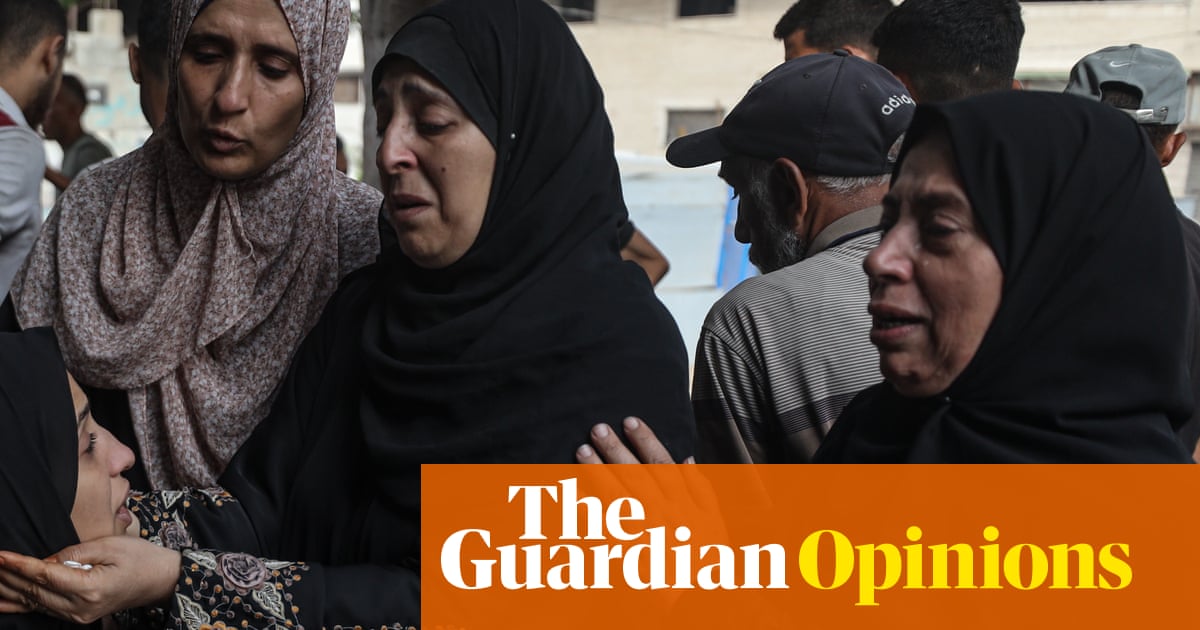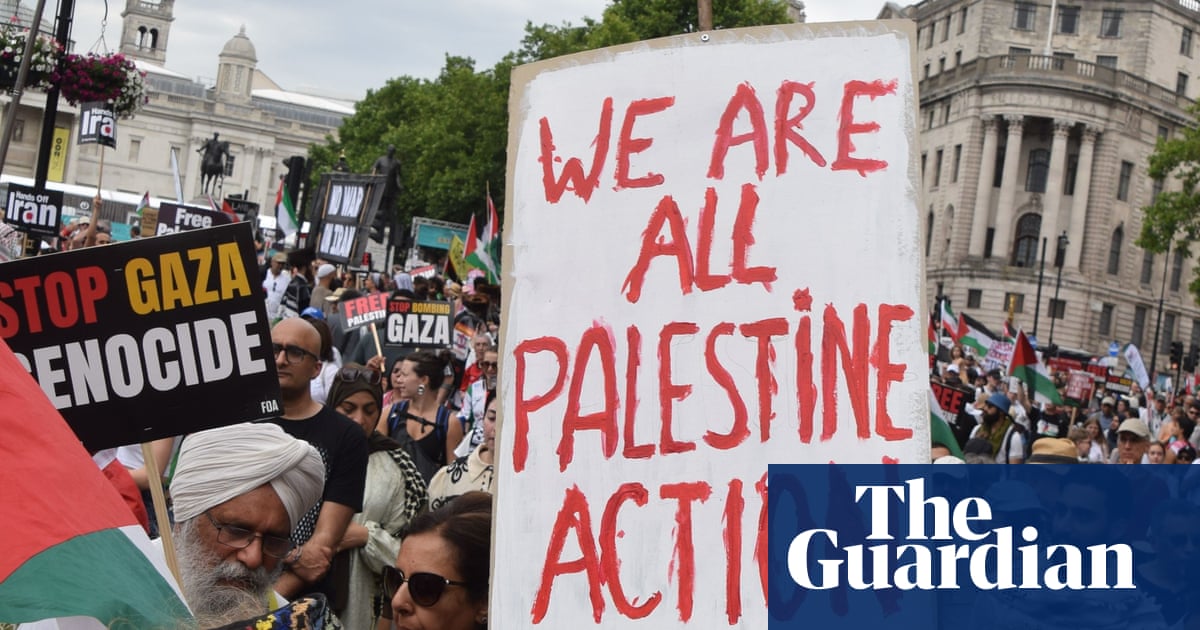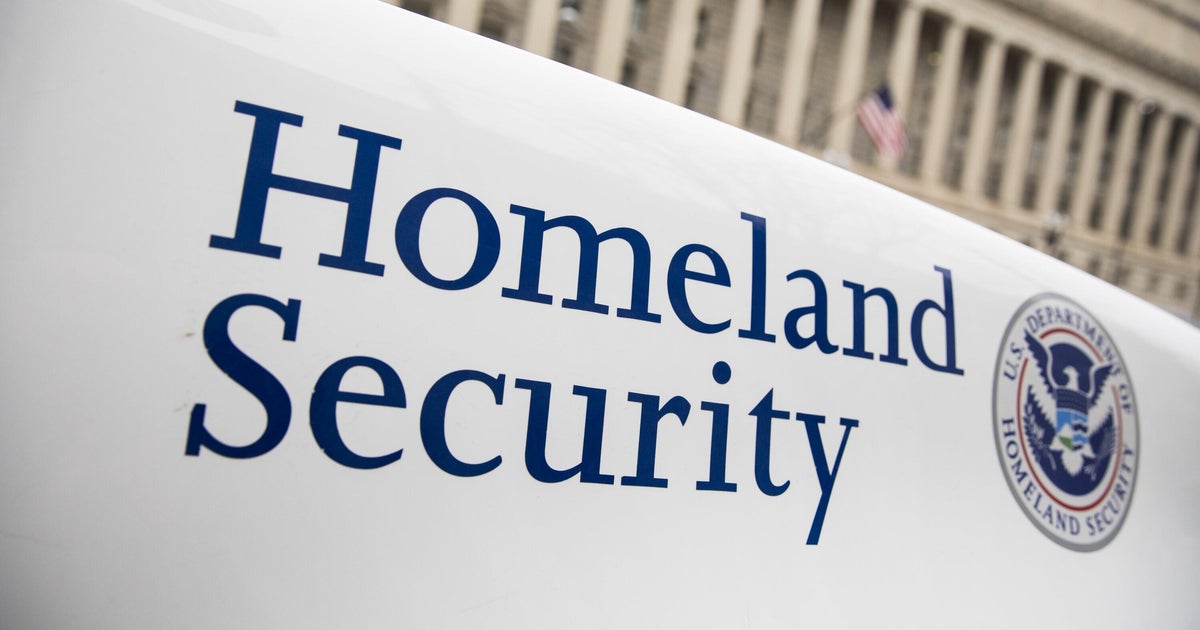
On 20 June, in what has now become an appallingly familiar storyIsraeli forces once again opened fire on Palestinians at an aid distribution site, this time killing 23 people. The same day, it was revealed that activists affiliated with the UK group Palestine Action had broken into an RAF base and defaced two military aircraft in an act of protest. One of these actions involved the intentional use of lethal violence against civilians, resulting in the deaths of 23 loved and irreplaceable human beings. The other involved no violence against any living things and resulted in no deaths or injuries. The UK government has now announced its intention to deal with one of these incidents as a terrorist offence. Guess which.
International organisations could hardly be more unanimous in their assessment that Israel is committing extremely grave war crimes in Gaza. In November last year, a UN special committee found that Israel’s campaign in Gaza was consistent with the characteristics of genocide. In December, an Amnesty International investigation concluded that Israel “has committed and is continuing to commit genocide”. Now, a series of unprovoked and illegal Israeli attacks on Iran have succeeded in drawing the US directly into war with Iranin violation of US and international law. While massacres continue in Gaza, Israeli aggression threatens to ignite a major regional and perhaps even global conflict.
And yet the UK continues to provide Israel with military intelligence, and British companies continue to sell lethal weapons to the Israeli state. In a poll conducted last year, 56% of British voters supported a complete embargo on arms sales to Israel. Across the UK, hundreds of thousands of people have attended demonstrations mourning those lost to the conflict and demanding an end to the slaughter. But the government stubbornly persists in its support for Israel’s military campaign. Mass peaceful protest, even with majority support among the wider population, has yielded no results. In the face of state support for genocide, what are conscientious people supposed to do?
The activists who broke into the RAF facility at Brize Norton knew, of course, that their actions were illegal. From the suffragettes to the gay rights movement to the anti-apartheid struggle, genuine political resistance has always involved intentional law-breaking. As Martin Luther King Jr wrote from a Birmingham jail: “One has a moral responsibility to disobey unjust laws.” And the provision of weapons to facilitate genocide is more than unjust: it is an abyss of moral horror. Those brave enough to break the law in protest – many of whom are already serving time in prison for their actions – deserve our highest respect.
But proscribing an entire organisation under the Terrorism Act is not the same thing as prosecuting particular individuals for specific transgressions. If the government follows through with its intention to designate Palestine Action as a terror organisation, mere membership of the group would constitute a crime. In fact, even supporting the group purely in words – as I am doing now – could also constitute a serious legal offence, punishable with a sentence of up to 14 years in prison. Financial dealings with members and supporters may also be illegal, even if the individuals concerned have done nothing against the law other than belong to or express support for a protest movement.
Under UK law, the home secretary has broad discretion to proscribe any organisation “concerned in terrorism”. Until now, this process has only ever been used against militant groups either directly involved in or actively advocating violent armed struggle. But crucially, the act defines terrorism vaguely enough to include mere property damage and disruption of electronic systems – even in the total absence of a threat to human life or public safety. If the government proceeds down this path, any ordinary person in the UK could in theory be sent to prison simply for expressing verbal support for non-violent activism. Quite aside from the broader principle, this would represent an alarming curtailment of free speech.
Palestine Action is not an armed group. It has never been responsible for any fatalities and does not pose any risk to the public. Its methods do involve property sabotage, which is, obviously, illegal. But if killing 23 civilians at an aid distribution site is not terrorism, how can we possibly be expected to accept that spray-painting a plane is? Law-abiding protest has so far failed to stop the genocide. More than 50,000 innocent children have been killed or injured. In what circumstances could civil disobedience ever be justified if not now?
I can only say that I admire and support Palestine Action wholeheartedly – and I will continue to, whether that becomes a terrorist offence or not.
-
Do you have an opinion on the issues raised in this article? If you would like to submit a response of up to 300 words by email to be considered for publication in our letters section, please click here.



